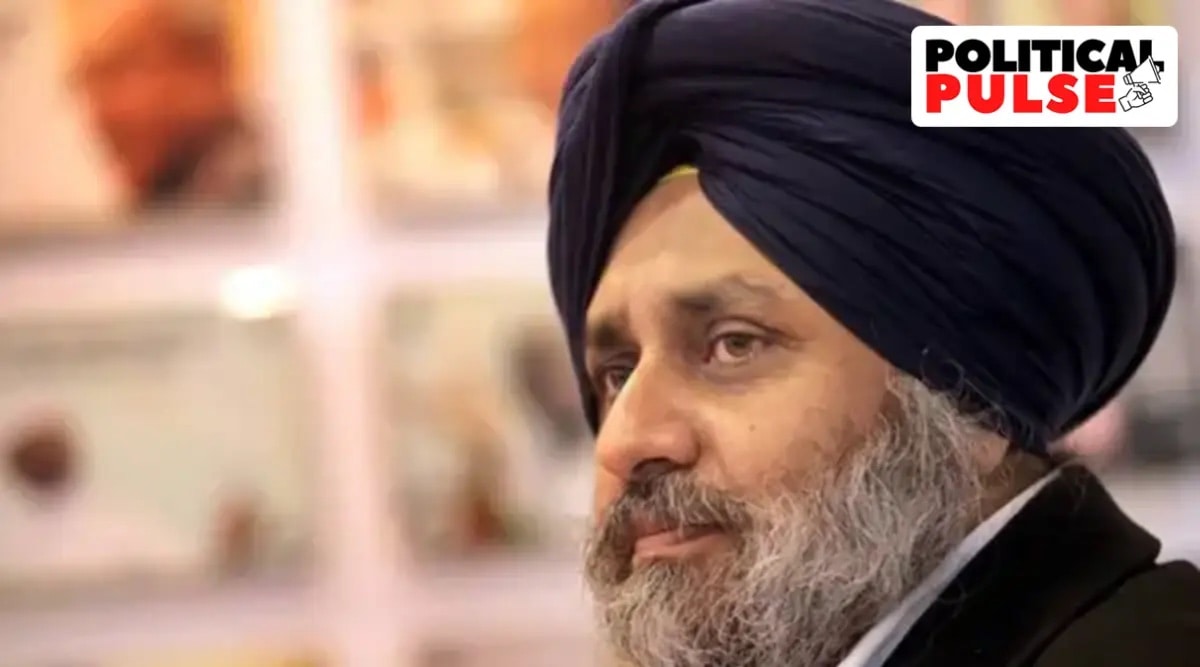Akali Dal backs EC on poll promise curbs, but party shaped ‘freebie politics’ in Punjab
The SAD is the only non-BJP party to have backed the Election Commission’s proposal to get political outfits to disclose how their polls promises can affect fiscal sustainability.

The Shiromani Akali Dal (SAD) is the only non-BJP political party to have backed the Election Commission’s proposal to amend the Model Code of Conduct and pave the way for the disclosure of how parties plan to finance promises made during elections and assess their impact on fiscal sustainability.
In its response to the move, Akali Dal said EC should elaborate on its mechanism to check the “veracity” of figures given by parties, adding that some parties “will try to mislead the electorate by quoting imaginary figures of raising additional resources”.
The SAD’s stand on the matter, however, raised eyebrows in political circles, given that the party itself has had a history of introducing a wide-ranging set of schemes for all sections of society when it was in power between 2007 and 2017.
In 2007, the party rolled out its wheat and dal distribution scheme, Atta-Dal, and the Shagun scheme under which Rs 15,000 was given to women from Scheduled Caste (SC) and Scheduled Tribe (ST) communities and the economically weaker sections at the time of their marriage.
The SAD has often listed the reach of the Atta-Dal as an “achievement”. The scheme has 1.41 beneficiaries – out of the three crore population in Punjab – and provides wheat at Rs 2 per kg and dal at Rs 30 per kg to the oldest woman in a family.
The free-power scheme, which was initially rolled out in 1997 for agriculture tube wells, went on to be expanded to farmers during their tenure. The party has also repeatedly stressed that it gave Rs 32,667.75 crore worth of free power to farmers between 2007 and 2017 in comparison to free power worth Rs 5,571 crore that the Congress gave during its time in power from 2002 to 2007.
That the Akali Dal wanted to reach out to every section of society can be gauged from the fact that the Parkash Singh Badal-led government introduced free pilgrimage services for people of all religions in 2016 despite objections from alliance partner BJP.
Under the Mukh Mantri Tirath Darshan Yatra scheme, free travel was arranged for the devotees to visit religious shrines such as the Hazur Sahib Gurdwara in Maharashtra’s Nanded, Varanasi, Vaishno Devi, and Ajmer Sharif. Speaking in the Vidhan Sabha in June 2017, Manpreet Singh Badal, the finance minister of the Congress government that came to power that year, said Rs 139 crore was spent on the scheme in the 2016-’17 fiscal year, leaving public transport undertakings such as Punjab Road Transport Commission and Punjab Roadways with an unpaid amount of more than Rs 13 crore. Manpreet announced that no further budgetary provisions would be made for the scheme and scrapped it.
During its second term (2012-’17), the SAD government also promised to provide free utensils to Panchayats, Mahila Mandals, and youth clubs for social and religious purposes; 200 units of free power to SC families, and doubled the pension of all categories. Besides building gyms in rural areas, it provided sports kits to village youth. Most of these schemes were implemented across the state, except for the free utensils initiative that was rolled out only in certain areas of the state.
During the Assembly election campaign earlier this year, the SAD partnered with the Bahujan Samaj Party (BSP). Its joint poll manifesto – called “Gall raj di nahi, gall Punjab di (It is not about ruling, but about Punjab)” – contained a long list of promises.
The party said it would give 400 units of free power to all households; Rs 10 lakh worth of free annual health insurance; Rs 2,000 per month to all women of blue card-holding families (BPL beneficiaries); and houses worth Rs 5 lakh, along with plots measuring five marlas (approximately, 1,361.25 square feet) to the homeless poor.
It also promised to increase the amount of the Shagun scheme – rechristened by the subsequent Congress government as the Ashirvad scheme – from Rs 51, 000 to Rs 75,000. The Badal-led party also said it would give Rs 5 lakh interest-free loan to the youth, especially women, to start their own business, a Rs 10-lakh student education card, and an “interest-free, no guarantee” long-term loan for education.
Along with wheat and dal of the Atta Dal scheme, the Akalis said they would give free potatoes and jaggery as well if voted to power. The SAD also promised 1 GB of free Internet data daily to every student along with video lectures.
SAD spokesperson Daljit Singh Cheema told The Indian Express, “The Akali Dal fulfilled all the promises made to the electorate. We back the EC proposal since political parties need to comply with the promises they make to electorates. The previous Congress government and incumbent AAP ditched the voters with false promises.”